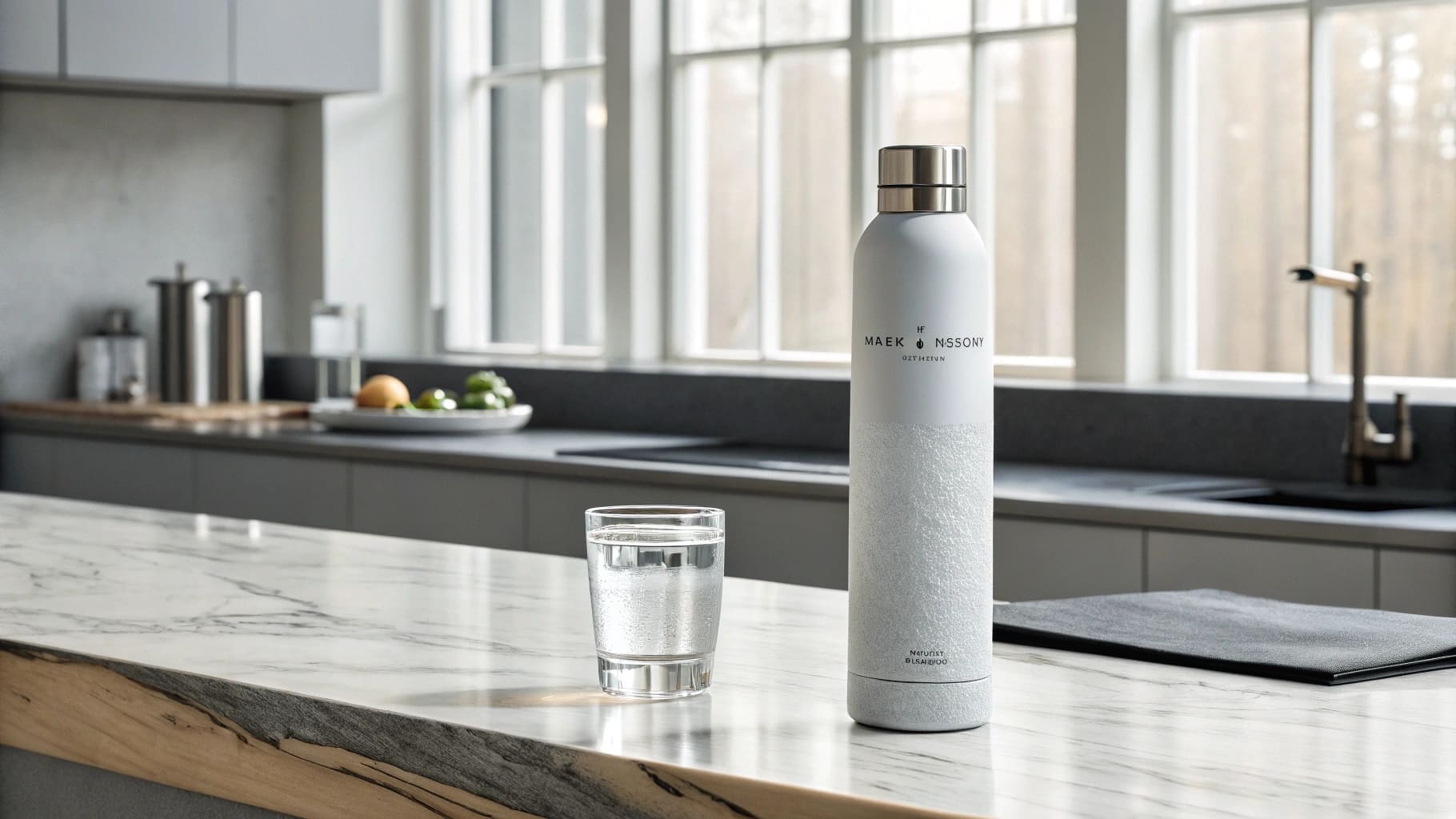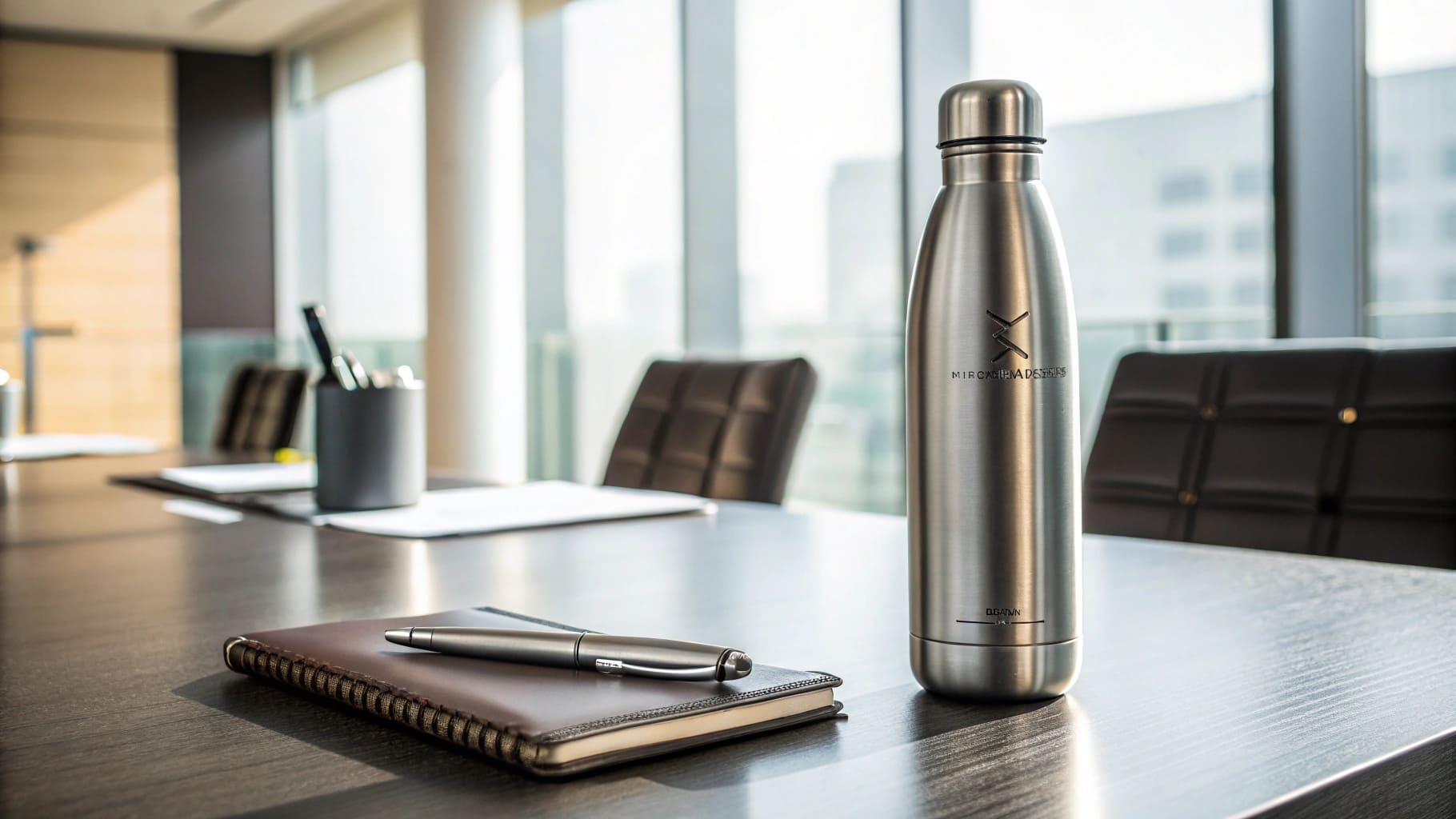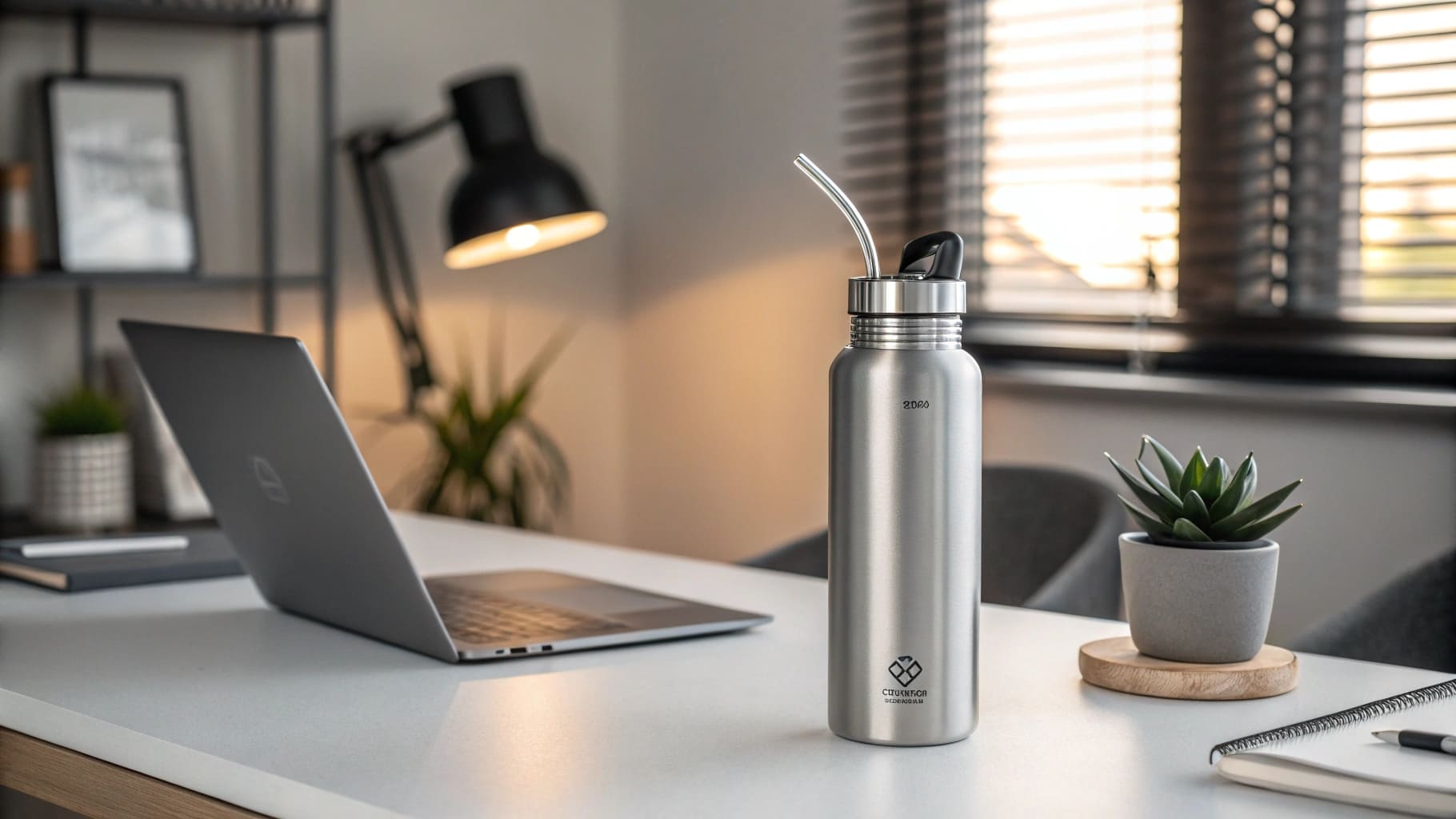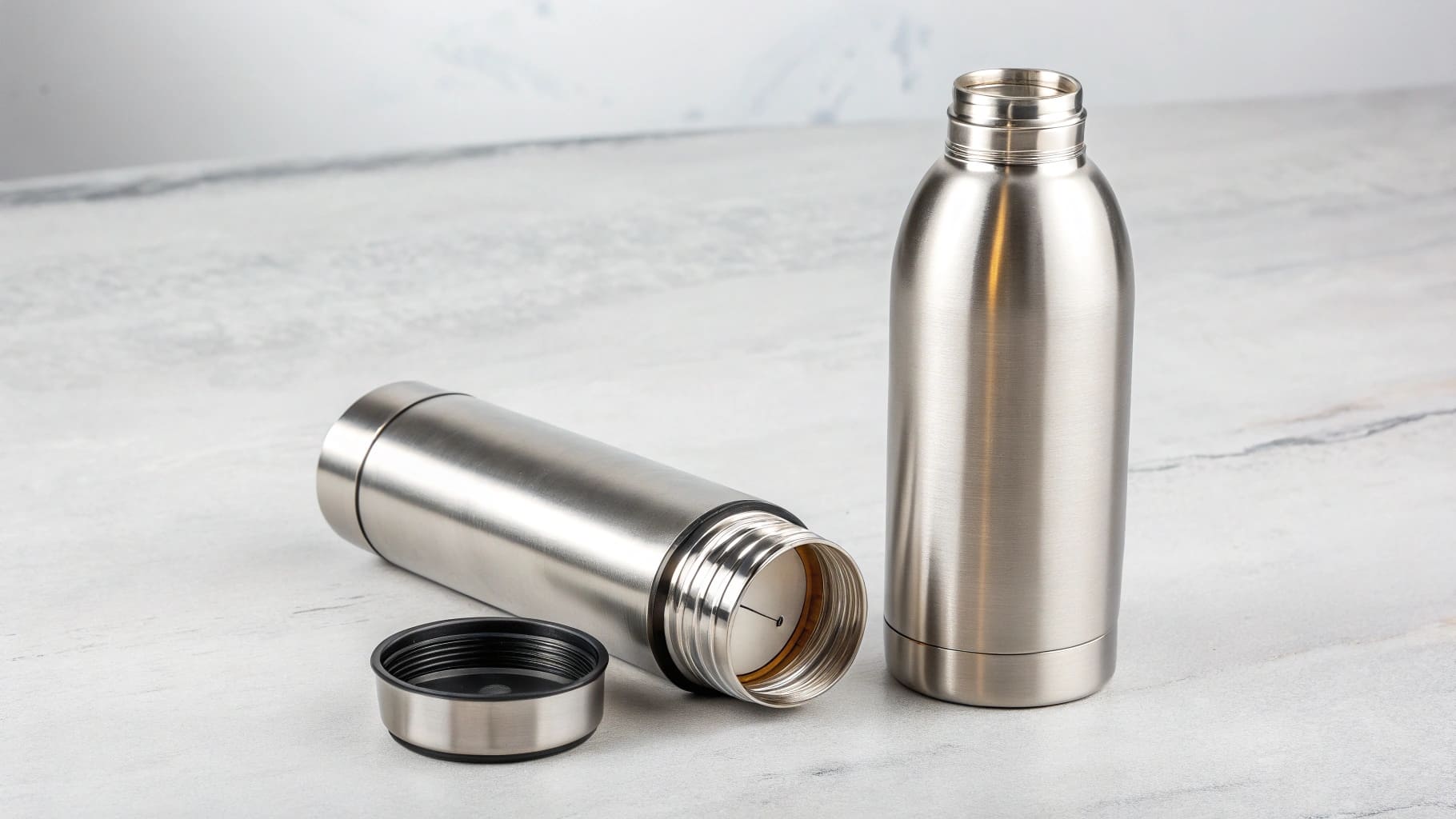Tired of smelly bottles or replacements? You want your bottle to last. Simple care is the secret to a long-lasting, fresh reusable water bottle.
Yes, simple daily cleaning and proper drying will make your reusable water bottle last much longer. For stainless steel bottles, this means they can serve you reliably for many, many years.

It's a common question I get, especially from bulk buyers like procurement officers who want to ensure the products they source are durable. They want to know how to advise their customers. After all, a long-lasting product reflects well on their brand. Let's explore how to make that happen, so you get the most out of your investment.
What is the lifespan of a reusable water bottle?
Wondering if your bottle has an expiry date? You want to know when it's time. The material and your care decide its true lifespan.
A reusable water bottle's lifespan, especially one made from high-quality 18/8 stainless steel, isn't fixed. It depends more on how you use and care for it than a set number of years.

Understanding Bottle Longevity
When I talk to clients like Mark Shenng, a company owner in Canada who buys stainless steel water bottles from us at Icobottle, lifespan is a key topic. He needs to be confident in the product he's rebranding and selling. The good news is, for quality stainless steel, we're talking about a very long time.
Material Matters: The Power of Stainless Steel
The type of material is the biggest factor.
- Stainless Steel (18/8 or SUS304): This is what we specialize in. It's food-grade, meaning it's safe for drinks. It's also incredibly durable and rust-proof. With proper care, these bottles can literally last for decades. They don't leach chemicals and resist odours and tastes. This is the champion for longevity.
- Plastic: Lifespan varies hugely. Some plastics degrade with UV exposure, can absorb odours, or may contain chemicals like BPA (though many are now BPA-free). They might last 1-5 years before showing wear, staining, or developing persistent smells.
- Glass: Can last indefinitely if not broken. The main risk is breakage. Lids or silicone sleeves might wear out first.
- Aluminum: Often lined, as aluminum can react with acidic drinks. If the lining gets scratched, the bottle might need replacing. They are lightweight but can dent easily.
For B2B buyers, emphasizing the longevity of 18/8 stainless steel is a strong selling point. It tells their customers they are investing in a product designed to endure, not a throwaway item. As a manufacturer in China, we ensure our stainless steel meets these high standards for our clients in America and Europe.
When should I replace my reusable water bottle?
Is your bottle looking rough or smelling off? You don't want to use an unsafe bottle. Clear signs tell you it's time for a new one.
Replace your bottle if it's badly dented (especially if vacuum-sealed), has persistent smells or tastes after deep cleaning, shows rust (unlikely for quality stainless steel), or if essential parts like seals are broken and not replaceable.

Key Indicators for Replacement
Even the best bottles might eventually need replacing. It's important for both end-users and for my B2B clients to know the signs. If Mark Shenng gets a customer complaint, knowing these indicators helps him assess the situation fairly.
1. Significant Physical Damage
- Dents in Double-Walled Bottles: If you have a vacuum-insulated stainless steel bottle, a major dent can compromise the vacuum seal between the walls. If this happens, the bottle will lose its ability to keep drinks hot or cold. It's still usable as a basic container, but its primary insulating feature is gone. I remember a client who dropped his bottle from a significant height; the dent was so severe, he noticed his coffee wasn't staying hot anymore. That's a clear sign.
- Cracks or Punctures: This is obvious. Any crack or hole means the bottle can leak and is no longer hygienic or safe to use. This is more common with plastic or glass but can happen to any bottle with extreme impact.
- Damaged Threads: If the threads on the bottle or lid are stripped or damaged, you won't get a proper seal. This leads to leaks and frustration.
2. Persistent Odors or Tastes
If you've tried thorough cleaning (more on that later) with vinegar, baking soda, or specialized bottle cleaners, and a funky smell or taste remains, it might be time to say goodbye. This is more common with plastic bottles, which can absorb strong flavors. For stainless steel, this is rare unless it's been severely neglected or used for very potent substances for a long time without cleaning.
3. Worn-Out or Irreplaceable Parts
- Seals and Gaskets: These are crucial for preventing leaks. Over time, silicone or rubber seals can degrade, tear, or become moldy if not cleaned properly. At Icobottle, we try to use standard-sized seals, and for some models, we can offer replacements to our B2B clients. This is a value-add that Mark appreciates, as it allows his customers to extend the bottle's life.
- Broken Lids: If a lid cracks or the mechanism breaks, and a replacement isn't available, the bottle might be unusable.
It's not usually about age, but condition. A well-cared-for bottle can outlast one that's abused, regardless of when it was purchased. For procurement officers, highlighting the availability of spare parts for lids or seals can be a good selling point.
How many years can you keep a water bottle?
Want a hard number for your bottle's lifespan? You're looking for a guarantee. With quality materials and good care, it's more about "indefinitely" than a specific year count.
A high-quality stainless steel water bottle, like those made from 18/8 food-grade steel, doesn't have a fixed lifespan in years. With proper maintenance, it can last indefinitely, far outliving plastic alternatives.

Maximizing Your Bottle's Life Through Care
As I mentioned, the lifespan of a top-quality stainless steel bottle isn't defined by a calendar. It's defined by how you treat it. This is something I always stress to my B2B clients like Mark. If they can educate their end-users on proper care, everyone wins. The customer has a long-lasting product, and the brand gains a reputation for quality and durability.
Here are the simple maintenance practices that will significantly extend its usability:
1. Regular Daily Cleaning
- What to do: Rinse your bottle with warm water after each use. If you've had something other than water in it (like tea, coffee, or a sports drink), use mild dish soap as well.
- Why it's important: This prevents residue buildup, which can lead to odors or bacteria growth. Think of it like washing your dishes.
- Personal story: I once had a new employee who just refilled his bottle daily without washing. After a week, he complained about a "funny taste." A quick wash with soap, and it was good as new. Simple, but easily forgotten!
2. Thorough Cleaning
- What to do: At least once a week, or more often if you use it for sugary or milky drinks, give it a deep clean.
- Vinegar Soak: Fill the bottle with a solution of equal parts white vinegar and water. Let it sit for a few hours or overnight, then rinse thoroughly. Vinegar is great for disinfecting and deodorizing.
- Baking Soda Paste: For stubborn stains or smells, make a paste of baking soda and water. Apply it to the inside of the bottle with a bottle brush, scrub gently, let it sit for 15-30 minutes, then rinse thoroughly.
- Why it's important: This tackles any lingering residues or potential microbial growth that daily rinsing might miss.
3. Don't Forget the Lid and Seals!
- What to do: Disassemble the lid as much as possible. Clean all parts, including threads and any silicone seals, with warm soapy water. Use a small brush for hard-to-reach areas.
- Why it's important: Lids and seals are prime spots for moisture to get trapped, leading to mold or mildew. This is the most common source of "bottle funk" I hear about. Mark once shared a customer issue that was resolved simply by teaching them to remove and clean the lid's gasket.
4. Proper Drying and Storage
- What to do: After washing, allow the bottle and lid to air dry completely. Store them separately (lid off the bottle) when not in use for an extended period.
- Why it's important: Prevents moisture buildup and the development of musty smells.
5. Things to Avoid
- Harsh Abrasives or Bleach: These can damage the stainless steel surface or any exterior finish. Mild soap is all you need.
- Dishwasher (Sometimes): While many stainless steel bottles say they are dishwasher safe (usually top-rack), repeated high heat and harsh detergents can sometimes affect the vacuum seal or exterior paint over time. Handwashing is gentlest for longevity. For our wholesale clients, we usually provide specific care instructions based on the finish of the bottle.
- Freezer: Don't put your stainless steel bottle in the freezer. Water expands when it freezes, which can damage the bottle and break vacuum seals.
By following these practices, an 18/8 (SUS304) stainless steel bottle, the kind we proudly manufacture at Icobottle, truly can last for many, many years – often outliving the owner’s initial expectations. It's this durability and ease of care that makes them such a great choice for businesses and consumers alike.
Conclusion
Simple, regular cleaning and careful handling will make your reusable stainless steel bottle last for years. Quality material plus good care equals long life.

